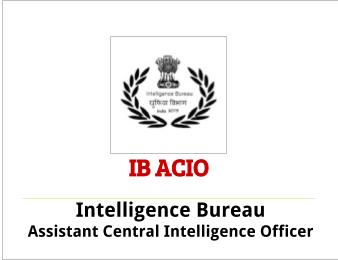Intelligence Bureau ACIO Exam Papers : 2017 Tier-2 Held On 25.02.2018
Intelligence Bureau ACIO Exam Papers : 2017 Tier-2 Held On 25.02.2018
Q1 Write an essay in English language only on any ONE of the following topics in not more than 400 words. (30 marks)
(i) Social Media, a boon or a bane for security agencies?
(ii) Do you agree that next world war will be fought over water unless we change the way we manage it? Justify your contention. iii) There is no honour in honour killing. Discuss in the context of Indian Society.
Q2. Read the following paragraph and answer the questions given below: (Each question carries 2 marks)
At times, solution to an intractable problem plaguing an organisation lies in a simple but profound game changing idea that impacts the entire functioning of the organization. The end result for the police is maintenance of peace and prevention and detection of crimes, as reflected through statistics. Statistics of crime reduction, detection and conviction form the mainstay for evaluating police functioning.
Regrettably, a focus on the end result of statistics, at times, reduces the attention of the processes. In sports, the player is said to enter a "Zone" when he effortlessly plays the game in a flow, rather than focus on the end result. Would a similar paradigm shift in the police approach, where the focus shifts from end results of statistics to the process improve police functioning? It would involve a shift that would engender a change in all branches of the organisation and all forms of its work. The approach would be evidence based and scientifically proved. The ultimate aim of policing is to increase public compliance to law, and the models of policing applied should aim towards that goal
A procedural justice model of policing increases police efficiency by positively impacting on public participation and cooperation. Being procedurally just means not only being fair, transparent and unbiased but also embedding the process with respect and dignity for all concerned. A respectful treatment across the board, within and outside the organization, a humane approach would enable the police to focus on each step of the policing method, rather than respond to the varied expectations of end results within the organisation and from outside.
Mainstreaming the human rights or humane approach to policing would embark the police personnel to work in a Zone that would make the police, as an end result, effective, efficient, competent and above all, respected. A humane approach would underlie all the varied applications of policing methods, whether evidence based, problem oriented or comrounity based.
(i) What is the ultimate aim of policing?
(ii) What is the fundamental approach suggested for the police to undertake that would improve its functioning?
(iii) The passage discusses two types of evaluations; what are they?
(iv) What aspect of policing does the passage compare the "Zone" of a sports player with?
(v) Difficult and complex problems always entail complicated solutions. True or false?
Q.3 Read the following passage and write its precis. (10 marks)
Research on stress among policemen across the world suggests that occupational stress in police arises through their peculiar job profile. Broadly it can be understood on account of the nature of police work with its risks and frequent exposure to violent and emotionally demanding situations entailing human suffering. The nature of police organisations with their institutionalised bureaucratic, hierarchical and at times autocratic, impersonal culture; the criminal justice system and its components that frequently evoke extreme frustration and helplessness in the face of perceived leniency and avoidable delay, the interactions with community, which carries its own expectations and lastly the personal life issues of a policeman impinge and affect his work, particularly paucity of time available to spend with the family, all combine to generate stress.
Policing entails a need for continuous decision making that is crucial to police performance and evaluation. Such decision making is often expected to be quick, in moments of physical risk for the policeman or others and damage to property. Invariably, these decisions come under great public and departmental scrutiny, which is conducted in the luxury of time and far removed from the sweat and grind of the situation. The lack of public confidence in police, the treatment of police in the media and entertainment sectors, alternately caricatured as bumbling buffoons or torch bearing messiahs evokes conflict and confusion in a policeman's mind. At once called upon to play the role of a kindly friend and saviour, and that of a forceful enforcer, a policeman's life can be roller coaste ride. Some studies indicate that the proportion of job related stress-cause morbidity and mortality in police may be more than injuries or fatalities at th hands of assailants and criminals.



